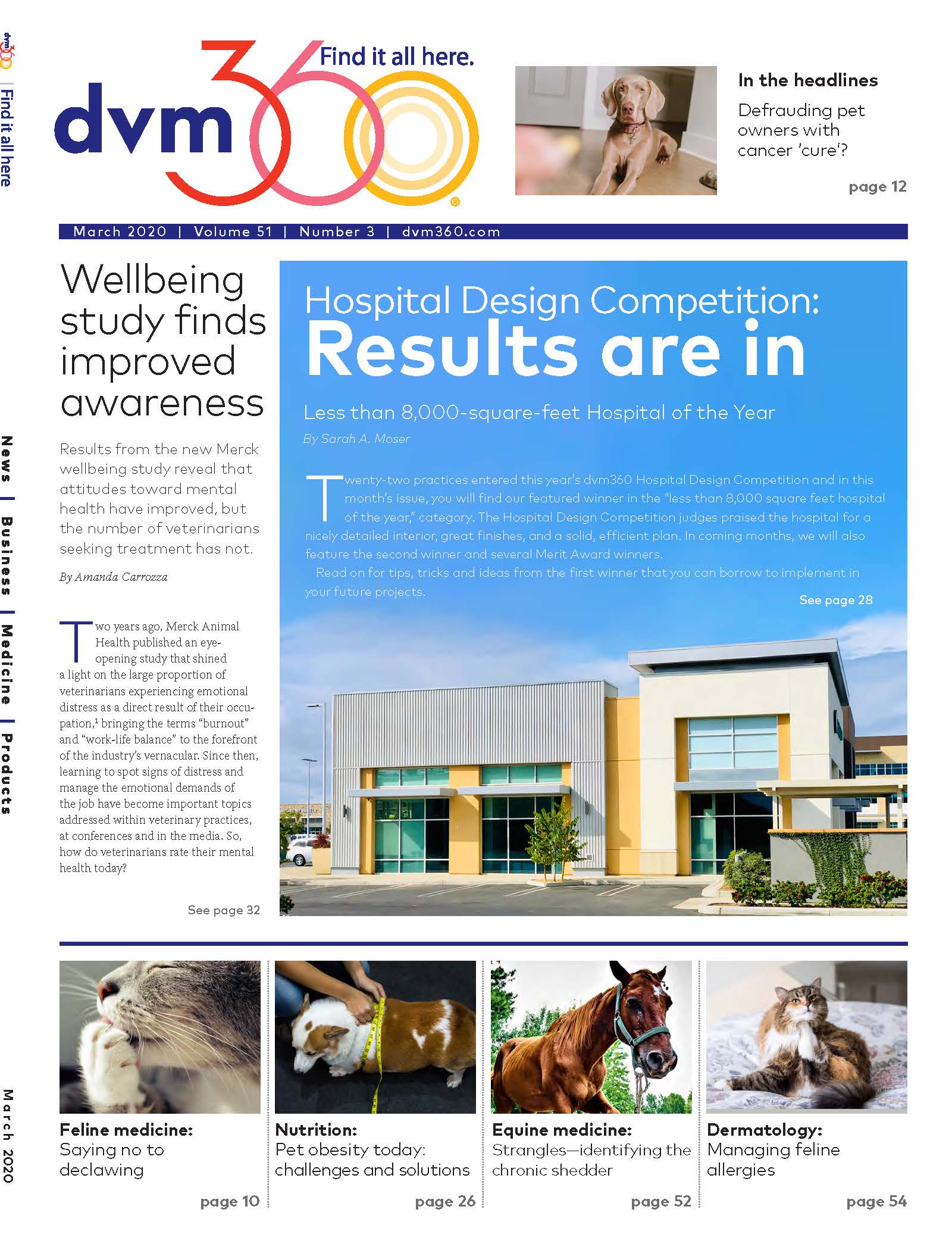Combatting the ‘loneliness epidemic,’ one pet at a time
A new report from Mars and the Human Animal Bond Research Institute explains how interaction with animals can help many people feel less alone and socially isolated, and provides recommendations for keeping companion animals safe and healthy in the process.
Simone / stock.adobe.com

Research shows that loneliness and social isolation can induce negative health effects that rival those of obesity and smoking. In a 2018 report from global health insurer Cigna, nearly half of Americans reported feeling alone, isolated or left out at least some of the time. An argument can be made that today’s so-called “loneliness epidemic” is a serious threat to public health.
But Mars Petcare and the Human Animal Bond Research Institute (HABRI) believe that help for many people who feel alone, socially disconnected or isolated can come in the four-legged form through human-animal interaction (HAI) and pet ownership.
Consortium on Social Isolation and Companion Animals
Recognizing the potential of companion animals to make a real difference in human mental health, in 2018 the retail giant and the nonprofit collaborated with practitioners and researchers from human and animal healthcare to form the Consortium on Social Isolation and Companion Animals, with four overarching goals:
- Identify the potential of HAI to assuage social isolation in people.
- Specify key research topics to study.
- Pinpoint hurdles that some individuals may face in realizing the benefits of HAI.
- Propose best practices and practical solutions to address those hurdles.
Last year, the consortium convened experts in public health, research, psychology, gerontology and veterinary medicine for the first-ever Summit on Social Isolation and Companion Animals to tackle these goals, particularly as they relate to older adults and the mentally impaired.
A report released this week by the consortium underscores the importance of social interaction in mental health and presents the results of a 2,000-person survey of both pet owners and non–pet owners throughout the United States. What they found may not be surprising to veterinary professionals:
- 80% of pet owners say their pet makes them feel less lonely.
- 54% of pet owners say their pet helps them connect with other people.
- 85% of all respondents believe that interaction with companion animals can help combat loneliness.
- 76% of all respondents agree that interacting with animals can alleviate social isolation.
“Pet ownership produces better heart health, and we have evidence that it improves mental health, but there’s an epidemic of loneliness in our society,” HABRI Executive Director Steven Feldman told dvm360. “We wanted to take a hard look at how having a pet and HAI can impact such a big societal challenge.”
Current goals
From the Summit came three primary recommendations to ensure that animals are taken into consideration when addressing the loneliness epidemic.
Advance high-quality research. Research is needed to help qualify best practices for whom and under what circumstances companion animals may be effective to help alleviate loneliness.
“We are working to facilitate and increase the amount of research in this area,” Angela Hughes, DVM, PhD, senior manager of Global Scientific Advocacy Relations at Mars Petcare, told dvm360, “because we understand that not every situation is going to be a perfect one for pet interaction.”
Instead of considering whether there is a pet in the home, future HAI research should take into account the quality of pet–human interaction and the degree to which individuals are attached to their pets. Future research should also evaluate the practice of animal-assisted intervention (AAI) to create evidence-based protocols that can be shared with all programs.
Remove barriers and offer solutions. Many barriers prevent older adults and the mentally impaired from participating in HAI. According to Feldman, this is an area where veterinarians play an important role.
“One of the barriers is making sure that as people age, they can keep their pets,” he says. “Veterinarians with older clients can help those clients keep their pets healthy as they age even as they move into continuing care facilities.”
But it’s also vital to recognize when pet ownership may not be the solution. “Do they not have the ability to personally care for a pet?” Dr. Hughes asks. “Maybe an interaction with a therapy animal would be more beneficial instead of them being responsible for that pet all the time.”
Amplify uptake of ‘gold standard’ programs. The third recommendation is to support and help advance best practices in HAI. When it comes to therapy animals, for example, what are best practices to keep these pets healthy and make sure their welfare is looked after?
“Perhaps a doctor can prescribe a pet to a client who is suffering from social isolation and loneliness,” Dr. Hughes explains. “But we have to ask what’s the right pet and the right situation? We’re trying to help provide good guidelines and best practices.”
Looking to the future
This report is just a starting point to help establish the role of pets and companion animals in helping to alleviate social isolation around the world. While some hurdles were identified at the summit, and best practices were proposed to help address these hurdles, researchers acknowledge that much more work remains.
Over the next five years, HABRI and Mars Petcare have committed to working to achieve these three goals in an effort to spark real change in society.
“Ultimately, we believe in the power of pets to help solve this pressing epidemic of loneliness and isolation,” Dr. Hughes says. “That’s why we feel like this roadmap is going to facilitate the role of HAI and pet ownership in addressing it.”
